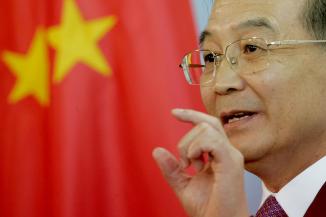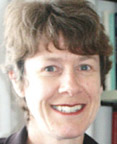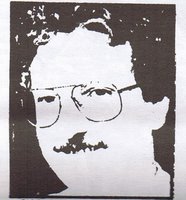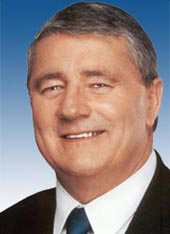Sam Webb-Shaping Your World
He can rightly take a lot of credit for recently helping to elect the most socialist US Congress since the 1930s. The political direction of the US dermines the direction of the planet. Webb and his party have a huge influence on the political fate of the US and by extension, of us all.

From a recent Webb report on the CPUSA website
For the past 25 years, the building of a labor-led people’s coalition against right-wing domination of our nation’s political structures has been our strategic objective. It has given political coherence to our policies and practical work and allowed our Party to stand head and shoulders above many organizations on the left.
Take, for example, the recent elections, in which the main political task was to take control of Congress out of Republican hands. No other struggle had the same potential to reconfigure the politics of our country and strike a blow for peace and social progress.
We understood this, and thus we were where a communist party should be: fully engaged in that struggle which if won changes the dynamics of every other struggle...
The task of the labor-led people’s coalition – and of our Party – therefore is to translate the November 7th victory into meaningful political, economic, and social reforms.
Broad coalitions that reach into Bush’s mass constituency can easily be imagined in the months ahead. Labor, the nationally and racially oppressed, women, and other social forces are already pressing their issues.
The Iraq war is on everybody’s agenda. The Democrats are pushing the issue in the Senate and House, with some support from their Republican counterparts. While they haven’t outlined their position in detail, opposition to Bush’s escalation, support for an exit strategy, and cuts in funds to prosecute the war are its main elements.
Other issues that will figure prominently are a minimum wage hike, health care, union organizing rights, and immigration, to name a few.
Each of these has great organizing potential. They are made for broad coalitions and grassroots actions. The very same forces that organized on the ground in the lead up to the election will be in the center of these struggles,
Skillful tactics that combine the united front from above with the united front from below are what is needed.
The Democratic Party leadership has embraced many of these issues. Speaker Nancy Pelosi, notably the first woman to occupy that position, is charging ahead.
We should welcome this and, actually, not be surprised. After all, Democratic Party leaders are sensitive to two incontrovertible facts. First, the American people expect them to enact legislation, to govern in a bipartisan way, and to return some civility and integrity to the Congress. Second, Democratic leaders know full well that what they do this year will have a decisive bearing on their prospects for retaining control of Congress and winning the presidency in 2008.
So there is real pressure on the Democrats to “produce.” This gives the labor-led people’s movement leverage to press its legislative agenda, some of which corresponds to the legislative agenda of the Democrats.
At the same time, other legislative initiatives will come into play that the Democratic leadership is not ready to move on at this moment anyway. One is the Conyers’ health care bill. And there are others. But that should not be a reason for the people’s movement to sit on its hands.
While we should keep an eye on what is going on in the Democratic Party and influence the political dynamics in a progressive direction where we can, let’s not get preoccupied by every twist and turn.
What happens inside Washington and in the Democratic Party is important, to be sure. But the main way that we are going to influence the legislative process is in the midst of the labor-led all-people’s coalition.
Given the sea change in US politics, what is our role? How should we work? Should we change our strategic policy?
Although the Republican right took it on the chin, it still constitutes the main obstacle to social progress and peace. So a change of strategic policy is premature. At the same time, we have to make some adjustments in our tactics and political agenda.
The most pressing task is to reengage with the same movement with which we worked during the elections. As before, its core forces are labor, the nationally and racially oppressed, women and youth.
For the foreseeable future this movement will activate its own constituencies and advance its own agenda while working closely with the Democratic Party and especially its progressive and liberal groupings in Congress to combat the right-wing danger and win legislative victories.
While reengaging with this labor-led movement, communists (and the non-sectarian left) should also reach out to new forces; bring opposition to the war into every movement and struggle; combine vigorous opposition to racism with equally vigorous advocacy of broad unity; employ broad and flexible tactics much like we did in the elections, perfect the art of combining partial with more advanced demands, and give full support to independent political forms at the local level. (After all, in the longer term a key strategic goal is to establish an independent political party on the national level that is capable of challenging both parties for mass influence and political power.)
We should also be mindful of the fact that what happens this year will have a major bearing on the outcome of the 2008 elections – elections that offer the opportunity to deliver a decisive defeat to the right.



















